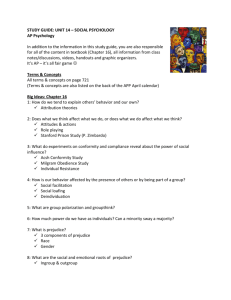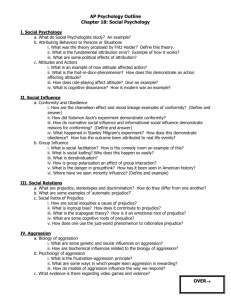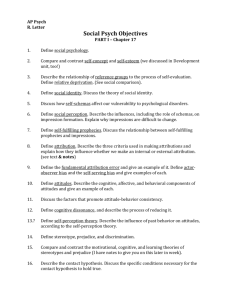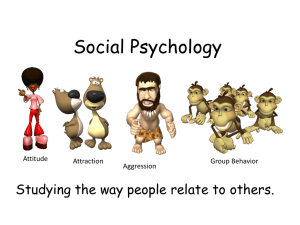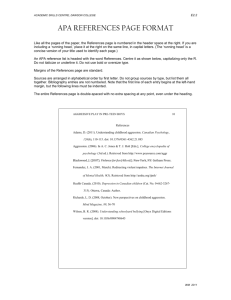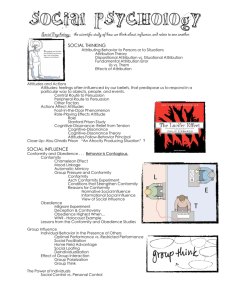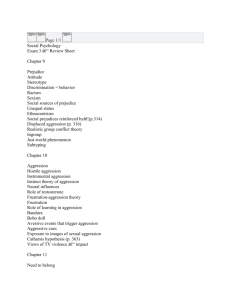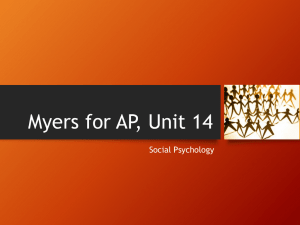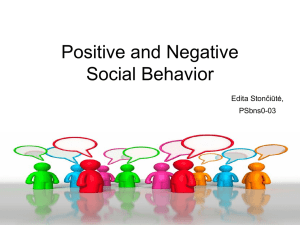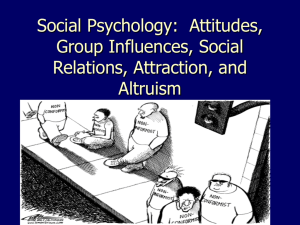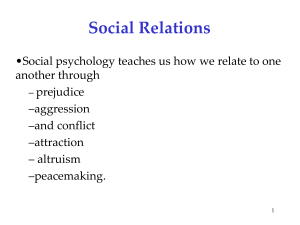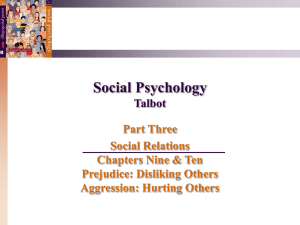Provide an example of how
advertisement
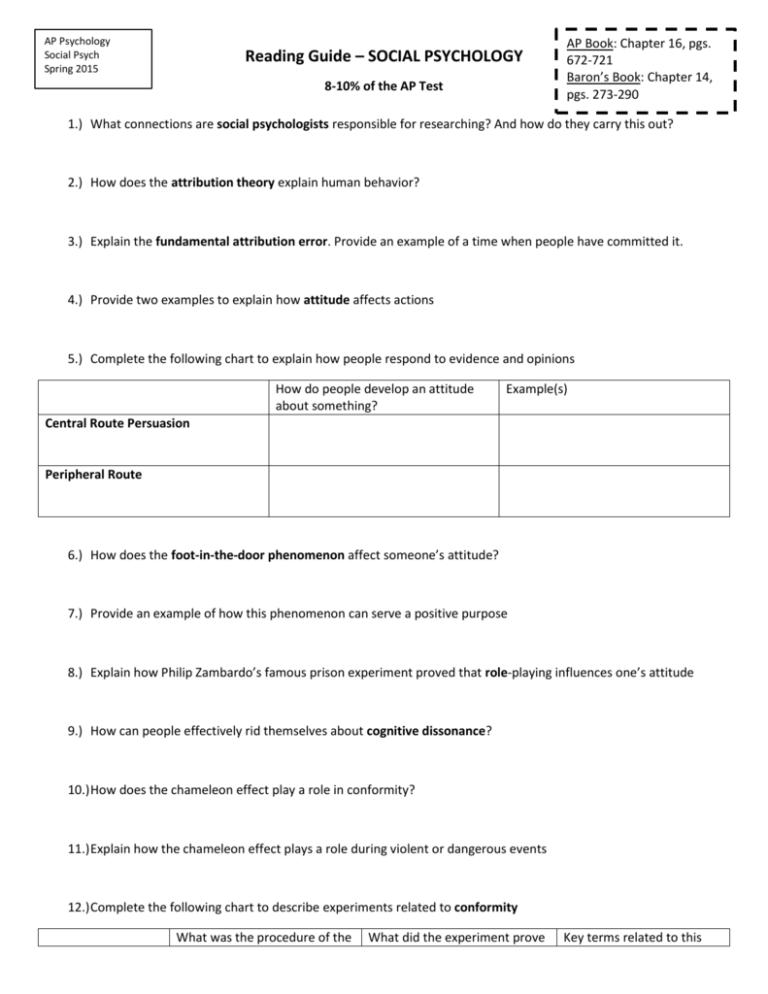
AP Psychology Social Psych Spring 2015 Reading Guide – SOCIAL PSYCHOLOGY 8-10% of the AP Test AP Book: Chapter 16, pgs. 672-721 Baron’s Book: Chapter 14, pgs. 273-290 1.) What connections are social psychologists responsible for researching? And how do they carry this out? 2.) How does the attribution theory explain human behavior? 3.) Explain the fundamental attribution error. Provide an example of a time when people have committed it. 4.) Provide two examples to explain how attitude affects actions 5.) Complete the following chart to explain how people respond to evidence and opinions How do people develop an attitude about something? Example(s) Central Route Persuasion Peripheral Route 6.) How does the foot-in-the-door phenomenon affect someone’s attitude? 7.) Provide an example of how this phenomenon can serve a positive purpose 8.) Explain how Philip Zambardo’s famous prison experiment proved that role-playing influences one’s attitude 9.) How can people effectively rid themselves about cognitive dissonance? 10.) How does the chameleon effect play a role in conformity? 11.) Explain how the chameleon effect plays a role during violent or dangerous events 12.) Complete the following chart to describe experiments related to conformity What was the procedure of the What did the experiment prove Key terms related to this experiment? about social influence? Solomon Asch’s line experiment Robert Baron’s lineup experiment experiment Conformity: Normative Social Influence: Informational Social Influence: Stanley Milgram’s obedience study Obedience: 13.) List at least three lessons that psychologists have learned from conformity experiments 14.) How does social facilitation relate to large groups of people? 15.) Provide two examples of behavior that are enhanced when other people are present 16.) What is the definition of social loafing? 17.) Explain how group polarization relates to group interaction 18.) Provide an example of group polarization 19.) Use some historical examples to explain how groupthink functions 20.) How was Mahatma Gandhi a minority influence? 21.) Complete the following chart to explain social relations What is it? Prejudice Example from society/AP book Stereotype Discrimination 22.) Provide some examples of cases of the “ingroup” and “outgroup” 23.) What does the scapegoat theory have to go with prejudice? 24.) When we categorize people and groups, what role does the other-race effect play? 25.) Explain the just-world phenomenon and provide an example of it 26.) Complete the following chart to explain the origins of aggression Explanation Example(s) Genetic influences on aggression Neural influences on aggression Biochemical influences on aggression Social and Cultural influences on aggression 27.) Provide an example of the frustration-aggression principle in society 28.) Explain why it is so difficult to pin down a true cause for aggression 29.) What role do violent video games and films play in teaching and/or releasing aggression? 30.) Complete the following chart to explain why we are attracted to certain people What role does it play in attraction? Example from society/AP Book Proximity Physical Attractiveness Similarity 31.) What is passionate love (in comparison to a general attraction)? 32.) Describe what companionate love is and how equity plays a role in creating a good relationship 33.) Complete the following chart to explain how altruism plays a role in each scenario or example How does it influence our altruistic behavior? Example(s) Bystander Effect Social Exchange Theory Reciprocity Norm Social-Responsibility Norm 34.) What is a social trap and how does it promote conflicts/violence? 35.) Provide an example of mirror-image perceptions 36.) What are four ways that people groups can remove feelings of aggression and prejudice to create peace? 37.) What does the strategy known as GRIT promote?
